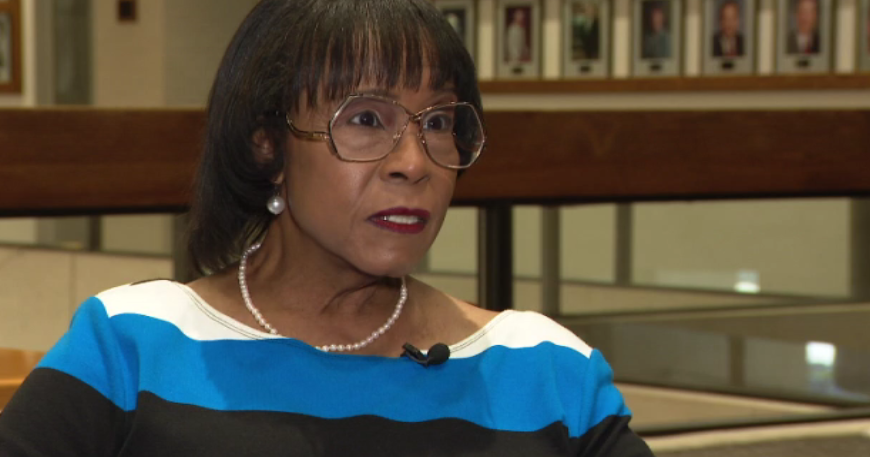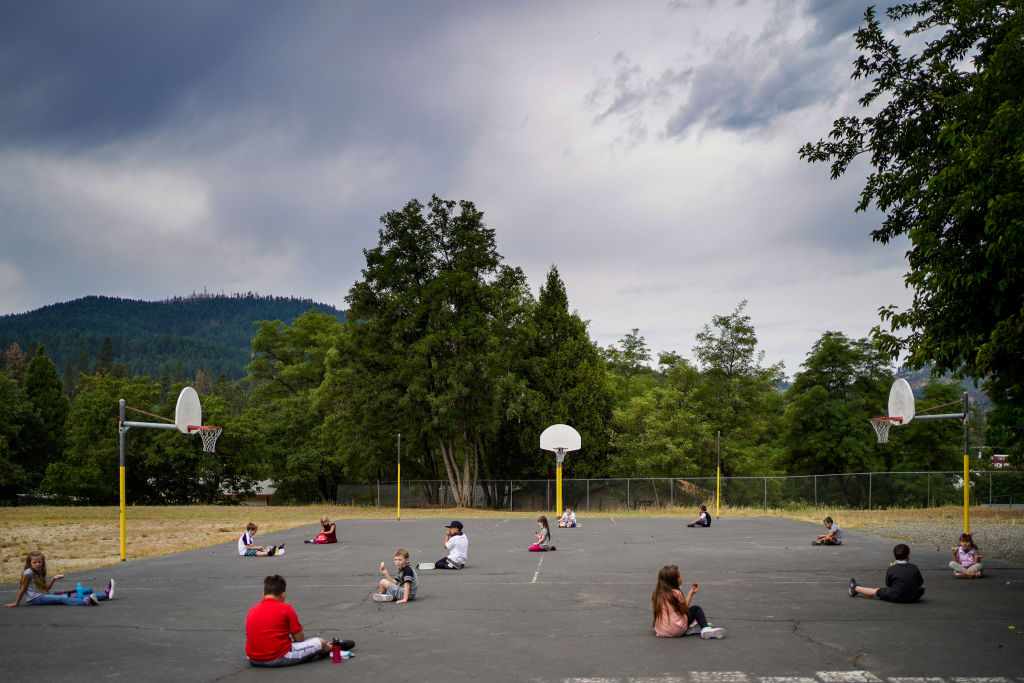A year into COVID lockdowns, Americans who lost jobs are trying to stay afloat: "My industry is not moving"
One year after COVID-19 lockdowns forced many companies to close, the share of unemployed Americans who have been out of work for more than half a year has surged above 40%.
The Añel family is just one example of these economic long-haulers. "CBS This Morning' co-host Tony Dokoupil first met the Añels in March 2020, just days after Gabe Añel lost his job at a company that handles lighting and sound for large in-person events.
Now, that family is speaking out again about the challenges they are facing in returning to work.
"You know, I mean, I get it. This has never happened before. This has never happened before," Gabe Añel told CBS News in 2020.
As the country had gone into lockdown, he could not imagine how long the pandemic would last — or how long he would be struggling to find work.
"I've sent out resumes, and spoken with people, but nobody's hiring, no one. We're not — my industry is not moving now, so it doesn't matter, you know?" Añel said this March.
Over the holidays, the career audio technician took a temporary job as a UPS delivery man.
"The first day it felt demoralizing until a lot of people I met were in similar industries as me," he said. "And it felt like you're everybody else."
Añel said the realization "really helped."
But it is clear more help is needed. One out of four small businesses closed by December 2020, according a study conducted by Facebook and the Small Business Roundtable. Of those that remain, over 40% of owners who responded to the U.S. Census Bureau's Small Business Pulse Survey believe it will take more than six months to recover.
At Corporate AV, where Añel worked, business is "25% of what we would've been normally in this time" over the last year, according to owner Joe Guilderson.
Guilderson said the pandemic has shrunk his live event business into a series of less profitable virtual gatherings — some of which may become permanent.
"I don't think every event will come back to being hundreds of people together. I think certain events will probably stay online," he said, meaning the company's losses would not heal quickly.
And that means former employees like Mo Johnson could not heal quickly either.
"I did have to ask for some extensions here and there. We borrowed from our 401K," Johnson said.
A year without full-time work has also meant a year without medical coverage — which CBS News first spoke to Johnson about last summer.
"My wife and I actually had a spat today," he said in 2020. "She said, you know, 'You should go to the dentist.' And I'm like, 'We don't have insurance.'"
Lately, Johnson has made another medical compromise in putting off the purchase of new contact lenses.
"Honestly, I do need some more but I've been really washing, cleaning," he said, adding he knew that cleaning and reusing disposable lenses came with a risk.
It is only thanks to unemployment benefits and federal stimulus money that former full-time employees like Johnson have been able to keep up with their bills.
However, he declined to call the money a "cushion."
"It's hard-earned," Johnson said. "I've paid into the system all my life… You know, this is what I pay in for. You're not giving me back my money, you're giving me back my investment."
As for Gabe Añel's wife Claudia, a year ago she feared the federal government would not be there when her family needed help.
"You're just constantly worried about, like, can I make this payment? Can I put my kid, you know, can I get a doctor?" she said in 2020.
But these days, even after unexpected expenses like a damaged fence and broken appliances, Claudia Añel has a different outlook.
"I don't feel as skeptical as I did last year. Because last year I just really felt like, 'Wow, we're just gonna be in an island,' you know? But this year I feel like, okay," Claudia said. "I think the government is hearing us and trying to get somewhere."
She said the COVID stimulus measures have been the "only reason we're afloat."
One full year into the pandemic, that is the main goal for families like the Añels — pay the rent or mortgage and make at least minimum payments on credit cards. While many families are treading water this way, they are still not going under.
"We're not gonna get out of debt at all," Claudia Añel said, her husband adding that they could only "ride the wave."
"Ride the wave for a little while longer," she laughed. "And that's the best most of us can hope for."



